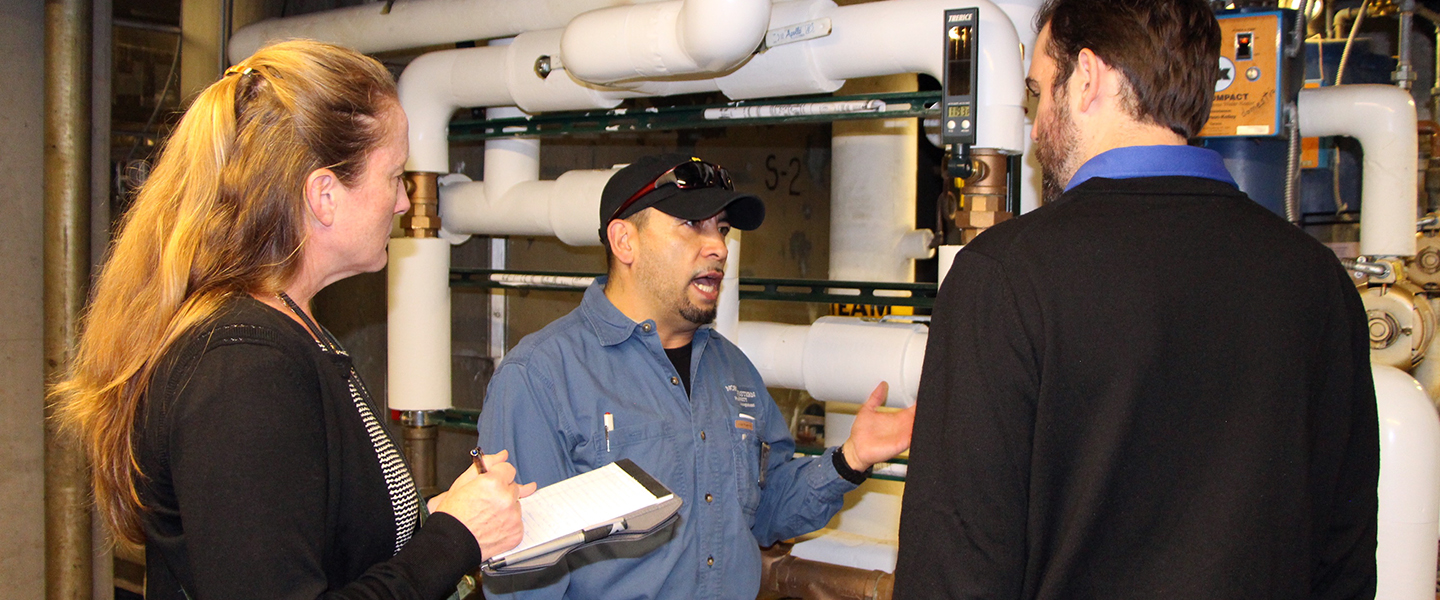
Getting Strategic about Energy Management
Northwestern is participating in the Strategic Energy Management Program, an energy efficiency incentive program offered by ComEd and Nicor Gas. Through this program, utility partners and consultants have been working with Facilities Management staff to identify low-cost and no-cost energy efficiency measures that can be implemented in Evanston campus buildings. Efficiency measures discovered through this process will be applied in buildings on the Chicago campus as well, expanding the reach of the program.
In October, four teams conducted an energy scan of 11 buildings including Cook Hall, the Technological Institute, Catalysis Center, Pancoe, Welsh-Ryan Arena, Patten Gym, Allison Residential Community, Elder Residential Community, Engelhart Hall, Foster Walker Complex, and McManus Center. Several students joined in on the energy scan to get a behind the scenes view of campus operations and provide their input and ideas for saving energy.
“I enjoyed participating in the energy scan because the engineers in my group were great about explaining how the equipment worked and how inefficiencies could be improved,” said Weinberg senior Sara Johns. “As someone with a nontechnical background, I learned a lot and also found that some of the questions I had helped further the conversation because they were coming from a different mindset,” she said.
During the energy scan, teams explored mechanical rooms, kitchens, and lab spaces and noted areas for improvement. Some improvements involve equipment upgrades or repairs, such as repairing pipe insulation or installing occupancy detectors to control lights. Other actions would include behavior changes, such as encouraging building occupants to turn off equipment that is not in use or educating lab users about how they can save energy by shutting the sash on fume hoods whenever possible.
After the scan, the group members compiled a list all of the things they observed in the various facilities. The next steps will be to identify which improvements could produce the greatest energy savings, prioritize the best projects, and make recommended upgrades.
Participation in the Strategic Energy Management Program involves a year-long commitment, with the option of participating for the second year. Northwestern’s goal is to cut energy use in targeted buildings by at least 5 percent by year two. The utilities will provide incentives for each kWh and therm saved compared with the baseline for energy use in those buildings. The cost savings from participating in this program will free up funds for additional investments in energy efficiency.